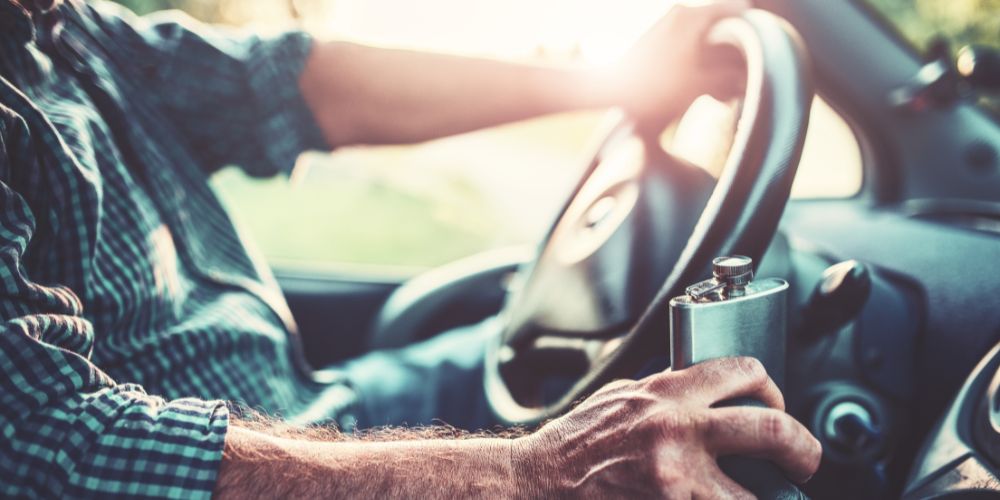If you’re facing a “driving under influence” charge, it’s important to understand the potential penalties. Learn more about Steps DUI in this article.
The criminal charge for drunk driving is often referred to as a “DUI” or “driving under the influence.” However, the less-known technical term is “operating while intoxicated” or OWI. Following an initial law enforcement traffic stop and proceeding arrest, each charge typically results from one of two scenarios:
- The DUI suspect was weaving through traffic in plain sight of a police officer, was flagged for an existing traffic violation, or a witness reported the suspect to law enforcement with a phone call.
- Initial police contact may result from responding to an accident or another type of emergency.
Regardless of the events that transpired, the cause of the initial law enforcement contact, the following occurrences, and the unique circumstances regarding an arrest are all crucial details that lawyers must analyze thoroughly.
An on-site breath or blood test will be performed following a DUI arrest as standard procedure. Most DUIs are minor and correctable, resulting in a next-day release from jail with a temporary paper license plate to be used in place of the original. A DUI arrest will also follow vehicle towing and impounding, resulting in the suspect paying out of pocket to claim the car back once released from jail.
The legal specifics regarding a Drinking Influence charge can be complex, as they often involve several legal and scientific nuances. However, below 5 simple steps after DUI are given for the legal process regarding a Michigan DUI charge.
1. The initial traffic stop
The reason law enforcement stopped you and how they did it set the groundwork for everything else regarding the process of a DUI criminal charge. Some of the most common situations leading up to a DUI are as follows:
- Suspects have fallen asleep behind the wheel in public settings, such as fast food drive-thrus.
- Good samaritans were reporting reckless driving to law enforcement.
- Vehicle accidents as a result of driving while intoxicated.
- Police observation of a suspect speeding or swerving through traffic.
In any case, the reason for the initial traffic stop must warrant enough probable cause to be valid and legal. Suppose there’s any uncertainty from police about the nature of a suspect’s behavior. In that case, they may request one of several types of field sobriety tests (FSTs) to confirm the presence of alcohol.
2. The arrest
After being arrested for DUI in Michigan, a criminal defense lawyer will consult with the suspect to discuss the events that transpired before, during, and steps after a DUI arrest. The reason for being pulled over, the results of the field sobriety tests, and the administration process and results of chemical tests are all factors that lawyers will take into consideration.
Before court arraignment, the criminal defense lawyer’s goal is to establish the big picture of a case with all evidence and facts considered, including the suspect’s recollection of what transpired at the scene. The criminal defense lawyer should also view police reports and any relevant body cam or dashcam footage.
3. The Arraignment
First contact with the court following a “DUI case occurs during the arraignment. It is an official hearing with a Judge or Magistrate in which the charge(s) placed upon you are announced, along with the bond’s price and mandatory conditions to follow to ensure the suspect remains out of jail.
Generally, the bond terms are the only important factor that results from the arraignment, which includes mandatory abstinence from alcohol and drugs, a court-ordered prohibition against state traveling unless permitted otherwise, and random drug testing to ensure compliance with no drug or alcohol consumption under the bond’s conditions.
During the arraignment proceedings, a DUI suspect should enter a “not guilty” plea to all charges assigned to them unless a reputable criminal defense lawyer with knowledge of all the facts regarding the case instructs the defendant explicitly to do otherwise. A not-guilty plea is crucial for lawyers by providing the opportunity to analyze if the dismissal of any charges for lack of evidence is possible or in terms of a negotiated plea bargain.
4. The pretrial
The pretrial steps, or pretrial conference, in other words, is intended as a discussion between the criminal defense lawyer and prosecutor who aim to find a middle ground in bringing a court case to a conclusion without having to extend it to a trial.
In the case of a DUI, getting the charge waived off or reduced as much as possible is the intended goal between both parties. However, since the prosecutor’s primary concern is not the most favorable outcome for the defendant, back-and-forth negotiations are often necessary during the pretrial to find a mutually agreeable resolution.
5. The trial
A courtroom trial will commence if the criminal defense attorney and prosecutor can not agree on a plea deal or other solution to resolve the case. A jury may or may not be present during the trial; if the hearing is before a judge only, it’s known as a “bench trial.” Either scenario will reach a verdict of guilty or not guilty.
If the defendant is found guilty of DUI, sentencing will occur during the trial. At this time, the Judge will weigh all the information presented about the criminal case to decide how much time behind bars, rehabilitative measures, or fines would be most appropriate. In Michigan, first-time convictions of drunk driving are categorized into two tiers:
If Blood Alcohol Content (BAC) is below .17, the first offense is punishable by:
- Up to a $500 fine
- Maximum 93 days in jail
- Community service of up to 360 hours
- License suspension maximum 180 days
- 6 points added to a driver’s license
If Blood Alcohol Content (BAC) is .17 or higher, the first offense is punishable by:
- Up to a $700 fine
- Maximum 180 days in jail
- Community service of up to 360 hours
- License suspension maximum of 1 year
- 6 points added to a driver’s license
- A court-ordered alcohol treatment program
- A restricted driver’s license is only obtainable by installing and using an ignition interlock device and complying with a license suspension for 45 days. Convicted drunk drivers have restricted driving privileges, are banned from vehicle operation without a working ignition interlock device, and are financially responsible for installation and upkeep maintenance.


